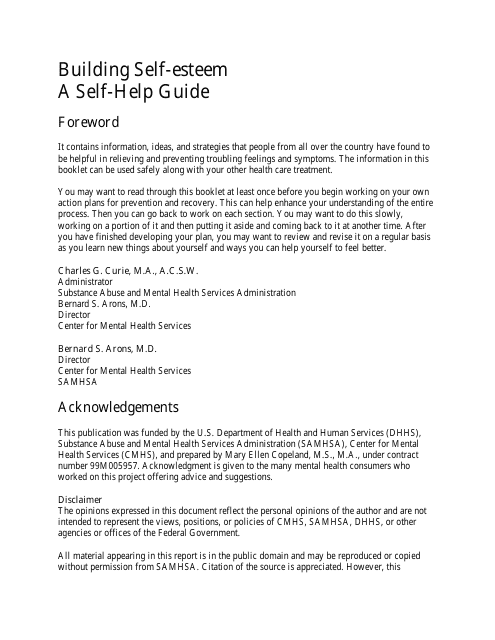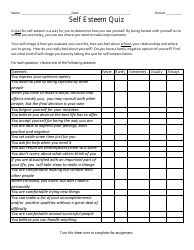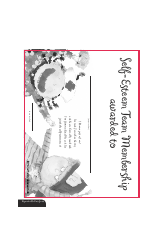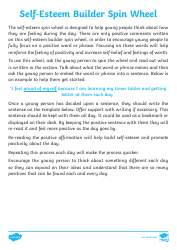Building Self-esteem - a Self-help Guide (Sma-3715)
"Building Self-esteem - a Self-help Guide (SMA-3715)" is a document created to provide guidance and support for individuals in improving their self-esteem. It offers strategies, tips, and advice to help individuals develop a positive self-image and increase their self-confidence.
The document "Building Self-esteem - a Self-help Guide (SMA-3715)" is not filed by any specific entity as it is a publicly available publication by the Substance Abuse and Mental Health Services Administration (SAMHSA) in the United States.
FAQ
Q: What is self-esteem?
A: Self-esteem is how you feel about yourself and your worth.
Q: Why is self-esteem important?
A: Self-esteem is important because it influences your thoughts, feelings, and actions.
Q: How can low self-esteem affect a person?
A: Low self-esteem can lead to negative self-talk, lack of confidence, and difficulty in forming healthy relationships.
Q: What are some ways to improve self-esteem?
A: Some ways to improve self-esteem include practicing self-care, setting realistic goals, and challenging negative thoughts.
Q: How can I practice self-care?
A: You can practice self-care by engaging in activities that make you feel good, such as exercise, spending time with loved ones, and pursuing hobbies.
Q: What is the role of setting realistic goals in building self-esteem?
A: Setting realistic goals helps you experience success and boosts your confidence.
Q: How can I challenge negative thoughts?
A: You can challenge negative thoughts by replacing them with positive and realistic thoughts, and by seeking support from friends or a therapist.
Q: What are some signs of healthy self-esteem?
A: Signs of healthy self-esteem include self-acceptance, resilience, and the ability to handle criticism.
Q: How long does it take to build self-esteem?
A: Building self-esteem is a process that takes time and effort—it varies from person to person.

























